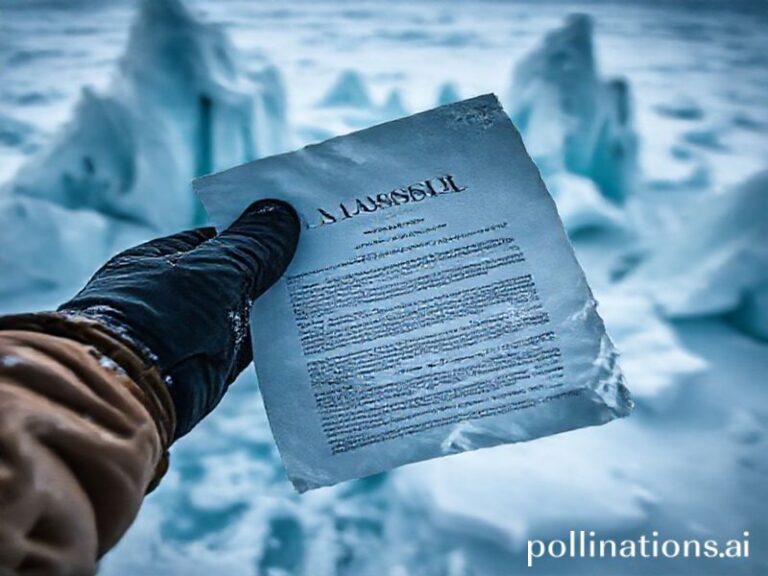From Alabama to the Arctic: How Polly Holliday’s ‘Kiss My Grits’ Became the World’s Favorite Insult Export
Sardonic Dispatch: How a Southern Waitress Named Polly Holliday Accidentally Became a Global Rorschach Test
By the time the Berlin Wall was being jack-hammered into souvenir chunks, a middle-aged woman in Alabama was still fielding dinner orders with the same two-word dismissal that had already circled the planet like a spiteful satellite. “Kiss my grits” was never meant to be geopolitical commentary, yet Polly Holliday’s acid-tongued Flo from “Alice” had by 1989 become a lingua franca of passive-aggressive resistance from Manila burger stands to Murmansk rail cafés. While diplomats traded communiqués, Flo traded insults—and somehow the insults traveled farther.
Holliday herself never applied for a passport until CBS sent her on a promotional tour of U.S. military bases in 1981. Somewhere between Ramstein and Yokota she discovered that German teenagers in Dead Kennedys T-shirts were quoting her lines phonetically, while Japanese salarymen requested Polaroids with the woman who’d weaponized hash-house sarcasm. She later admitted she thought Ramstein was “a kind of schnitzel.” The world, it seems, was consuming her performance the way it consumes everything: ravenously, cluelessly, with extra MSG.
The genius of Holliday’s Flo was that she embodied a very American fantasy—clock-punching service workers with nuclear-grade comebacks—while also confirming every foreign stereotype about American loudness. To Parisian critics, she was proof that Yanks couldn’t even fry an egg without a Broadway monologue. To São Paulo waiters, she was a folk hero vindicating every suppressed urge to tell the customer exactly where to place the tip. UNESCO never got around to listing her apron as intangible heritage, but only because UNESCO has no sense of humor.
Meanwhile, the show’s dubbing teams wrestled with the untranslatable. Italians rendered “Kiss my grits” as “Va’ a farti un giro,” essentially “Take a hike,” which sounds like a pleasant stroll through Perugia. The French went existential: “Baise ma polenta,” merging Southern starch with Mediterranean mush, producing a phrase nobody in Lyon has ever uttered sober. In the Cold War’s twilight, even Radio Moscow’s English service played clips of Flo to illustrate capitalist vulgarity—then segued into farming reports, as if potatoes were morally superior to cornmeal.
Holliday, a Juilliard-trained Shakespearean, spent the rest of her career oscillating between regional theater and cameos where directors asked her to “do the grits thing.” She obliged with the weary dignity of a mercenary. When the Berlin Wall fell, a tabloid asked her to pose smashing a plate of grits on a concrete fragment. She declined, citing union rules about props. Somewhere in the former GDR there’s an alternate timeline where Flo became the face of reunification merchandise, right next to Hasselhoff.
The broader significance? In an era when McDonald’s was colonizing Red Square and CNN was beaming Baywatch into Riyadh living rooms, Polly Holliday offered a smaller, more subversive export: the idea that the underpaid could talk back. Global supply chains delivered cheap T-shirts; Holliday delivered cheap attitude—both made in the USA, both prone to shrinkage after repeated washings. Multinationals sold rebellion by the ounce; she gave it away for free with a side of sarcasm. No wonder she never got residuals.
Today, in the age of algorithmic servility and chatbot politeness, Flo’s brand of unscripted scorn feels almost quaint—like a rotary phone that spits insults. Yet TikTok clips of Holliday’s eye-roll still rack up millions of views from Jakarta to Johannesburg, usually captioned with local grievances about tipping culture. Turns out the planet runs on the same bitter fuel; we just pour it into different mugs.
So here’s to Polly Holliday: accidental export, reluctant oracle, patron saint of every barista who’s ever fantasized about answering “extra foam” with two words and a Southern drawl. May her grits remain unkissed forever, and may the rest of us keep finding creative ways to serve the dish cold.







